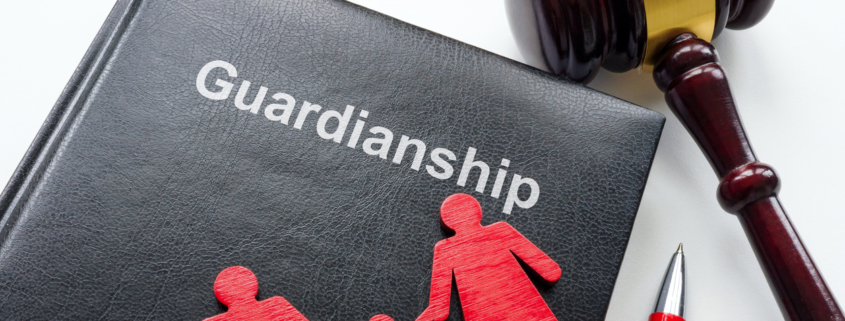How Families in Conflict Can Use Mediation to Resolve Guardianship Issues Without Prolonged Court Battles
Orlando families face complex decisions when a loved one can no longer manage their affairs. Whether the issue involves an aging parent, a special needs adult child, or someone at risk of financial exploitation, guardianship may be the right step. But these cases often create deep conflict among family members, especially when people disagree about who should serve as guardian or whether a guardianship is even necessary.
I’m Beryl Thompson-McClary, an Orlando Guardianship Attorney, and I’ve worked with clients on both sides of guardianship disputes—some who are trying to protect a vulnerable loved one, and others who believe a guardianship is being misused or mishandled. I’ve handled these cases across Orange County, Florida, and I know how emotionally charged they can become. That’s why I often encourage families to consider mediation as a way to resolve these disagreements without the cost, stress, and public exposure of a courtroom battle.
If you’re involved in a guardianship dispute or concerned that a guardianship may be hurting rather than helping your loved one, call my office at 1-888-640-2999 to schedule a consultation. I’ll help you understand what your rights are and how Florida law applies to your specific situation.
What Is Mediation in a Florida Guardianship Case?
Mediation is a voluntary, confidential process where parties work with a neutral third party—a trained mediator—to try to reach an agreement. In the context of guardianship, mediation can help family members resolve disputes without requiring the court to make all the decisions. It’s not about who wins or loses—it’s about finding a resolution that works for the ward and preserves important relationships.
Under Florida Statutes § 44.1011–44.108, mediation is recognized as an alternative dispute resolution tool, and Florida probate and guardianship courts often refer contested matters to mediation before proceeding to a hearing. That’s because these cases are rarely just legal—they’re deeply personal.
As an Orlando Guardianship Attorney, I’ve seen mediation resolve issues like:
- Who should be appointed as guardian
- Whether a guardianship is needed at all
- Concerns over a guardian’s financial management
- Disputes over visitation or medical care decisions
- Suspicion of undue influence or abuse
Why Do Guardianship Disputes Happen?
These cases usually start with good intentions. Someone notices a parent or relative is no longer managing finances safely or seems vulnerable to exploitation. But when multiple family members disagree about the right solution, things can quickly escalate.
Common disputes I see in my practice include:
- One sibling believes guardianship is needed; another insists it’s not
- Adult children don’t agree on who should be guardian
- A previously appointed guardian is accused of misusing funds
- A guardian is limiting access between the ward and other family members
- The ward is objecting to the guardianship entirely
Disagreements like these can turn into long court battles unless mediation is considered early. Mediation can de-escalate conflict and help everyone get clarity on what’s best for the ward.
Florida Law and Court-Ordered Mediation in Guardianship Matters
Under Florida Probate Rule 5.095, contested guardianship matters—including petitions for appointment, objections to appointment, removal of a guardian, or challenges to accountings—are subject to mediation at the court’s discretion. Judges in Orange County often refer families to mediation in an effort to encourage resolution and avoid a full evidentiary hearing.
Mediators in these cases are typically required to be certified under Florida Supreme Court rules. They do not take sides. Their job is to help the parties listen to each other, clarify what’s at stake, and come to a written agreement—one that can be submitted to the court for approval.
Whether you’re the petitioner, an objecting family member, or an existing guardian under review, I can represent your interests during mediation and ensure that your position is clearly articulated and legally protected.
Mediation Benefits for Guardianship Disputes in Orlando
Families who choose mediation often report less stress, more control over the outcome, and better relationships afterward. That’s not just talk—I’ve represented dozens of clients in mediations where real, lasting resolution was achieved.
Some benefits include:
- Confidentiality – Unlike a public courtroom hearing, mediation discussions are private
- Faster resolution – Cases resolved through mediation can settle in days or weeks instead of months
- Less expense – Mediation typically costs far less than fully litigated guardianship proceedings
- Customized agreements – Parties can agree on flexible solutions tailored to the ward’s needs
- Preserved relationships – Mediation fosters communication, not courtroom conflict
What If Mediation Fails?
Mediation is voluntary. You’re not required to accept any offer or settle if the terms don’t protect the ward’s interests. If the parties are unable to reach a resolution, the case returns to court for a formal hearing. At that point, a judge will decide who should serve as guardian, whether the current guardian remains, or whether any misconduct has occurred.
Even if mediation doesn’t fully resolve every issue, it often clarifies where each party stands and helps narrow the issues the court must address. In many cases, partial agreements reached in mediation reduce the time and cost of litigation.
Representing Both Sides: Guardians and Concerned Family Members
I work with clients who are seeking guardianship as well as those who are contesting it. If you’re being accused of mismanaging a ward’s affairs and you know that’s not true, mediation gives you a chance to tell your side calmly and effectively. If you believe your loved one is being isolated or financially mistreated, mediation gives you a legal channel to address those issues and request appropriate changes.
In either case, I prepare my clients to enter mediation with a clear understanding of the law, a strategic plan, and a focus on protecting the ward’s well-being.
Guardianship Mediation and Florida Statutes
Florida guardianship law is designed to protect the ward’s rights while offering families a legal structure to ensure care and accountability. The court’s priority is always the ward’s best interests, and any mediation agreement must reflect that.
Relevant statutes include:
- Fla. Stat. § 744.331 – Procedures for determining incapacity
- Fla. Stat. § 744.312 – Factors for court appointment of a guardian
- Fla. Stat. § 744.441 – Powers of the guardian that require court approval
- Fla. Stat. § 44.102 – Court-ordered mediation of civil disputes
Mediation doesn’t take the court out of the equation—it’s a way to allow the parties to present a joint resolution to the court that meets legal requirements and avoids protracted litigation.
When You Should Consider Mediation in a Guardianship Dispute
You should seriously consider mediation if:
- The family is divided over who should serve as guardian
- You suspect financial or emotional abuse, but there’s no solid proof
- The court is pushing the parties toward resolution before hearing
- There are underlying personal conflicts influencing the legal dispute
- You’re trying to avoid unnecessary expense, delay, and hostility
I help clients throughout Orange County evaluate whether mediation can help resolve their case. If mediation is right for your situation, I’ll be by your side the entire time, protecting your rights and helping you fight for your loved one.
Florida Guardianship Mediation Frequently Asked Questions
Can a judge force parties to go to mediation in a guardianship dispute?
Yes, under Florida Probate Rule 5.095 and Florida Statutes on court-ordered mediation, judges may require the parties to attend mediation in a contested guardianship case before proceeding to a full hearing. The court cannot force a settlement, but it can require that you sit down with a neutral mediator and attempt to reach a resolution.
What happens if no agreement is reached during mediation?
If mediation ends without a full agreement, the case will proceed to a hearing where the judge will make a decision. However, anything said during mediation is confidential and cannot be used in court. Even partial agreements can help narrow the issues and reduce the time needed in front of the judge.
Can the ward participate in mediation?
In some cases, yes. If the ward retains some decision-making capacity or the mediation involves issues that affect their daily life, they may participate, either directly or through their attorney or guardian ad litem. The court may also require their input for final approval of any settlement.
Does mediation delay the guardianship case?
Not necessarily. In fact, mediation often resolves issues more quickly than litigation. In many guardianship disputes, mediation is scheduled early in the process to reduce delays and limit court time. If the case is urgent, the court may address emergency matters while mediation is still pending.
Can we use our own mediator or must we use one appointed by the court?
You may agree to use a mediator of your choosing, as long as both parties agree and the court approves. If the parties cannot agree, the court will appoint a certified mediator. It’s important that the mediator understands probate and guardianship law, especially if financial or legal complexities are involved.
How much does guardianship mediation cost?
The cost of mediation varies depending on the complexity of the case and the mediator’s fees. In most cases, the cost is shared between the parties. Compared to full litigation, mediation is often far more cost-effective, especially when it resolves the case without multiple hearings or depositions.
Is a mediated guardianship agreement legally binding?
Yes, once the parties sign the agreement and the court approves it, the terms become legally binding. The judge must ensure that the agreement complies with Florida law and serves the ward’s best interests. If approved, it has the same legal force as a court order.
Can mediation address issues beyond guardianship, like visitation or family communication?
Absolutely. One of the biggest strengths of mediation is that it allows families to address broader concerns that the court may not resolve on its own. This includes family access, holiday schedules, decision-making coordination, and even financial transparency. These terms can be included in a mediated settlement.
Contact Orlando Guardianship Attorney Beryl Thompson-McClary at 1-888-640-2999 For A Consultation.
If you are involved in a guardianship dispute in Orlando and want to explore whether mediation can help resolve your case before it escalates, I can help you understand your rights and legal options. Whether you’re pursuing guardianship or challenging one, I’ll work to protect your loved one’s interests and give you a clear plan forward.













